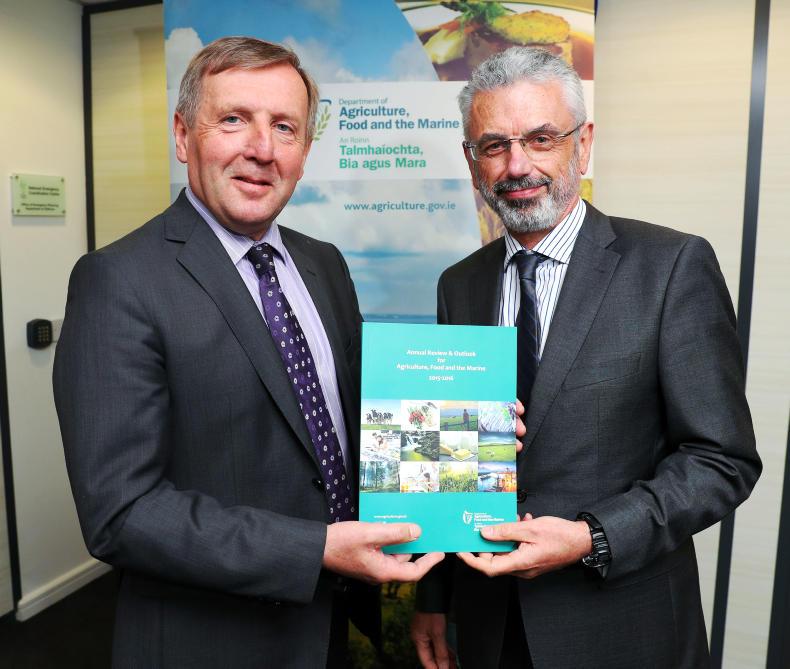The Department of Agriculture has acknowledged farmers’ concerns over inspections, but defended its record including in the alleged north Tipperary black spot.
In a statement to the Irish Farmers Journal, a Department spokesperson said that it will be increasing efforts to explain the nature and process of inspections and the requirements of farm schemes, and “is happy to work with the farm organisations and others in this process”.
This includes the consultation of stakeholders and independent experts in the review of the agricultural appeals office.
Department secretary general Aidan O’Driscoll and Agricultural Appeals Office director Angela Robinson were among the officials questioned by the Oireachtas Agriculture Committee on Tuesday following revelations that the number of inspections and level of penalties in north Tipperary were higher than the national average.
In-line
“The number of inspections in Tipperary, north and south, is broadly in line with expectation given the farming intensity in the county compared to other counties,” the Department spokesperson said, adding that farms were selected for inspection by headquarters staff based on the land types, number and scale of enterprises, number of livestock and previous inspection history of each area.
Penalties
“Local Department staff have no input into either the number of inspections or the selection of farms for inspection,” the spokesperson said.
“It is not true to say that penalties are exceptionally high in Tipperary – in fact, penalties as a percentage of claim value are actually well below the national average,” he added.
The spokesperson highlighted that inspection records are regularly checked by national and EU auditors, as well as the Farmers Charter Monitoring Committee.
Read more
Farm inspections put in spotlight
Listen: ‘I had a REPS inspection on the day my mother died’
The Department of Agriculture has acknowledged farmers’ concerns over inspections, but defended its record including in the alleged north Tipperary black spot.
In a statement to the Irish Farmers Journal, a Department spokesperson said that it will be increasing efforts to explain the nature and process of inspections and the requirements of farm schemes, and “is happy to work with the farm organisations and others in this process”.
This includes the consultation of stakeholders and independent experts in the review of the agricultural appeals office.
Department secretary general Aidan O’Driscoll and Agricultural Appeals Office director Angela Robinson were among the officials questioned by the Oireachtas Agriculture Committee on Tuesday following revelations that the number of inspections and level of penalties in north Tipperary were higher than the national average.
In-line
“The number of inspections in Tipperary, north and south, is broadly in line with expectation given the farming intensity in the county compared to other counties,” the Department spokesperson said, adding that farms were selected for inspection by headquarters staff based on the land types, number and scale of enterprises, number of livestock and previous inspection history of each area.
Penalties
“Local Department staff have no input into either the number of inspections or the selection of farms for inspection,” the spokesperson said.
“It is not true to say that penalties are exceptionally high in Tipperary – in fact, penalties as a percentage of claim value are actually well below the national average,” he added.
The spokesperson highlighted that inspection records are regularly checked by national and EU auditors, as well as the Farmers Charter Monitoring Committee.
Read more
Farm inspections put in spotlight
Listen: ‘I had a REPS inspection on the day my mother died’






 This is a subscriber-only article
This is a subscriber-only article










SHARING OPTIONS: